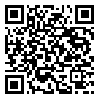Volume 12, Issue 9 (12-2012)
Iranian Journal of Medical Education 2012, 12(9): 638-646 |
Back to browse issues page
Download citation:
BibTeX | RIS | EndNote | Medlars | ProCite | Reference Manager | RefWorks
Send citation to:



BibTeX | RIS | EndNote | Medlars | ProCite | Reference Manager | RefWorks
Send citation to:
Abbaszadeh A, Borhani F, Asadi N. Effects of Face-to-face Health-belief Oriented Eduation about Risk Factors on Knowledge and Attitude of Myocardial Infarction Patients after Discharge. Iranian Journal of Medical Education 2012; 12 (9) :638-646
URL: http://ijme.mui.ac.ir/article-1-1973-en.html
URL: http://ijme.mui.ac.ir/article-1-1973-en.html
, nedaasadi87.nax@gmail.com
Abstract: (10232 Views)
Introduction: Most risk factors for cardio-vascular diseases are related to behavior and knowledge. Educational programs are essential for changing the patient's lifestyle. This study aimed to assess the effects of face-to-face training about risk factors based on health belief model on knowledge and attitude of myocardial infarction patients after discharge.
Methods: This was a quasi-experimental study. Eighty patients were randomly assigned to either intervention or control group. Data were collected through a researcher-made questionnaire. Educational contents were designed in a health belief model frame based on the collected data and educational needs. Each patient in the intervention group received face-to-face training individually and the control group received the routine hospital method. Finally, data were analyzed using Chi-square, paired t –test, and independent T-test.
Results: Study results showed that there were no significant differences between mean score of knowledge and attitudes in the two groups before the intervention (p> 0.05). However, after the intervention, knowledge and attitude scores in the intervention group (31.02±1.4,105.9±5.96) and the control group (51.86± 5.96, 16.92±1.4) showed a significant difference in every dimension of the model (p<0.05).
Conclusion: Study results indicate the importance of using appropriate preventive models in active education, which helps prevent recurrent problems in patients with myocardial infarction.
Type of Study: Original research article |
Subject:
Teaching Methods
Received: 2012/02/4 | Accepted: 2012/09/22 | Published: 2012/12/15 | ePublished: 2012/12/15
Received: 2012/02/4 | Accepted: 2012/09/22 | Published: 2012/12/15 | ePublished: 2012/12/15
پرسشنامه مطالعه [DOC 92 KB] (758 Download)
Send email to the article author
| Rights and permissions | |
 |
This work is licensed under a Creative Commons Attribution-NonCommercial 4.0 International License. |




